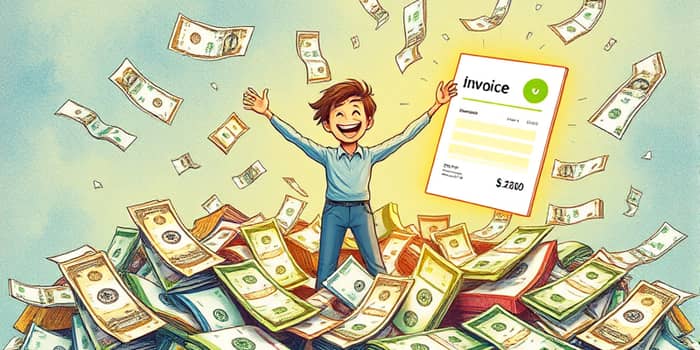
Imagine waking up each month free from the anxiety of juggling several due dates and interest charges. Your inbox is clear, your budget aligns, and you focus on living rather than worrying. This is the promise of debt consolidation: transforming complexity into clarity.
Debt consolidation combines multiple debts—credit cards, personal loans, medical bills—into one loan or credit facility. This new loan pays off your previous balances, so you make just one payment each month, ideally at a lower interest rate. In effect, you gain a smoother repayment path that turns a tangled web of obligations into a single, manageable commitment.
At its core, debt consolidation aims to replace multiple minimum payments and due dates with one predictable monthly obligation. It can take the form of a balance transfer credit card or a consolidation loan—secured or unsecured. When executed wisely, it offers a straightforward way to regain control over your finances and design a repayment plan that fits your lifestyle.
For many households, scattered debts create more than a financial strain; they produce constant stress. Simplifying payments can improve mental well-being and reduce the chance of costly late fees or missed payments. Consider these common struggles:
Debt consolidation addresses these challenges head-on by replacing multiple payments with one easy-to-track schedule, giving you back precious time and peace of mind.
When you consolidate, you could secure a fixed monthly payment at a rate lower than your current debts. This makes budgeting simpler and helps you reduce your overall interest charges over time. A consolidated loan usually comes with a set term—often between one and seven years—so you know exactly when you will become debt-free.
Other advantages include:
On-time payments towards your consolidation loan can help improve your credit score by lowering your credit utilization ratio and building positive payment history. With fewer accounts to manage, you can focus on one lender relationship, avoiding the risk of accidentally missing a due date.
By combining debts into a single obligation, you can often pay off balances faster—provided you resist opening new lines of credit. The combination of lower rates, fixed terms, and disciplined repayment can accelerate your journey to financial freedom.
Choosing the right consolidation tool depends on your credit profile, debt amount, and risk tolerance. Two primary methods dominate the market:
Balance transfer cards are ideal if you can pay off the transferred balance before the introductory rate expires. Consolidation loans—secured by home equity or unsecured personal loans—offer longer terms but may include origination fees or collateral requirements.
Debt consolidation isn’t free. You may face origination fees of 1–8% of the loan amount, balance transfer fees of 3–5%, and possible prepayment penalties. Your credit score influences the interest rate you qualify for; lower scores often mean higher APRs or even application denial.
Extending repayment over a longer term can reduce your monthly outlay but raise total interest paid. And if you continue using paid-off credit cards, you risk falling into deeper debt. Before signing any agreement, make sure to understand all terms and fees associated with the loan or card.
Consolidation can be a game-changer when:
• You carry multiple high-interest balances on credit cards or payday loans.
• Your credit score is strong enough (often 670+) to secure a lower total interest rate.
• You can commit to the discipline needed to avoid fresh charges once your accounts are paid off.
If these conditions align, consolidation could simplify your finances and set you on a clear repayment track.
While consolidation suits many situations, other paths may fit your needs:
Each option carries its own benefits and drawbacks—debt management negotiates lower rates through counseling, settlement reduces principal at a credit cost, and bankruptcy offers a fresh start at a major credit and asset expense.
Debt consolidation can be the spark that ignites long-lasting financial health. To maintain momentum, consider these steps:
By following these guidelines and using consolidation as a strategic tool, you can avoid accumulating new debt and take control of your finances. Embrace this opportunity to transform stress into empowerment, clear obstacles, and move confidently toward a debt-free tomorrow.
References













